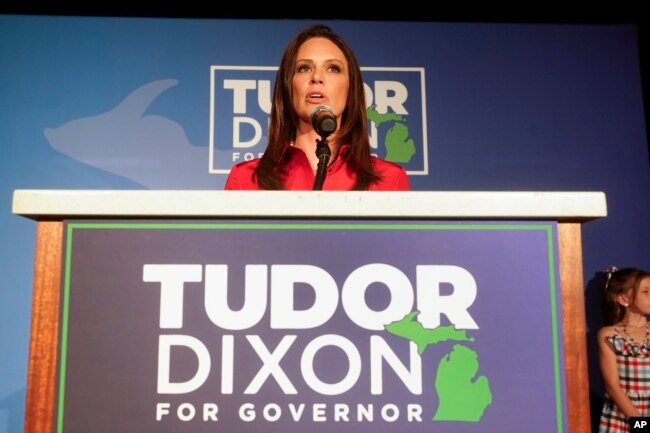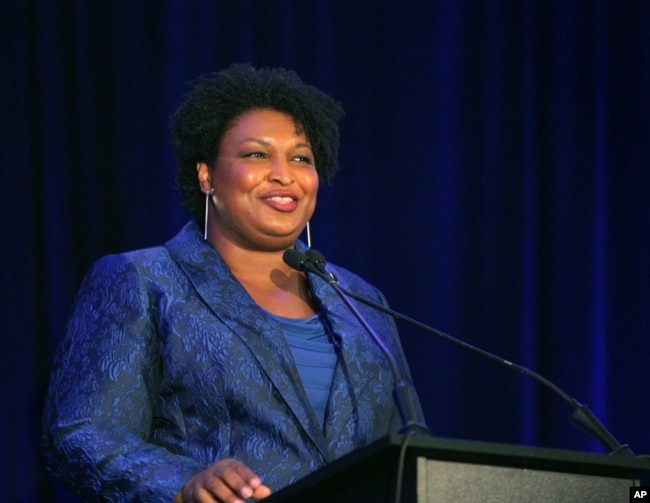The two major American political parties have nominated a record number of female candidates to lead states in the country. Voting for new governors will be held in 36 American states in November.
So far, 20 women have won party nominations, breaking the record of 16 set four years ago. Thirteen represent the Democratic Party, and seven represent the Republican Party.
“It’s notable because this is an area where women’s underrepresentation has been quite persistent,” said Kelly Dittmar, director of research at Rutgers University’s Center for American Women in Politics.
“But it’s especially important as we see major policy issues being allocated back to the states,” Dittmar said, noting recent constitutional court decisions on reproductive rights and voting rights.
Currently, nine women serve as governors in the United States, the highest number in its history.
“It’s a powerful and influential political position where we want women’s voices and experiences to be heard,” Dittmar said.
In total, the two parties have named 47 candidates for governor.
Fifteen nominations are still to be decided.
In five of the governor races this year, women represent both major parties.

“It’s a good reminder for us not to make assumptions that women are the same in ways that we don’t make that assumption for men who are competing against each other,” Dittmar said.
Seeing women in positions of power sends an important message to donors, voters and future female candidates about the ability of women to succeed at the highest political levels, Dittmar said.

“We want enough women in these offices that there are a diversity of them.”
Dittmar added, “You know, we’ve only ever had three women of color governors in all of U.S. history. We only have one woman of color currently serving as governor. We’ve never had a black woman governor.”
I’m Faith Pirlo.
Dora Mekouar wrote this article for VOA. Faith Pirlo adapted it for Learning English.
_______________________________________________________________________
Words in This Story
persistent – adj. continuing over and over again
allocate – v. to divide and give out (something) for a special reason or to particular people, companies, etc.
assumption – n. something that is believed to be true or probably true but that is not known to be true: something that is assumed
diversity – n. the condition or fact of being different
